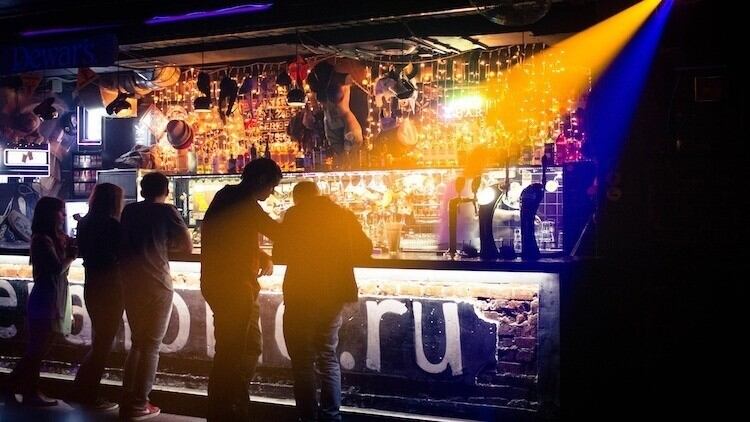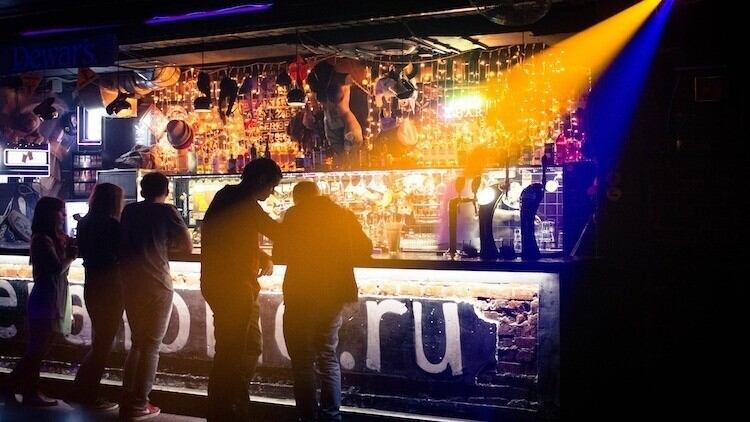The group, which represents some 1,200 independent bars, clubs and live music venues across the UK, warns that government rhetoric and guidance has left the sector facing ’12 days of Christmas misery’, with the Government allowing businesses to trade but heavily implying that consumers should reduce contacts and socialising.
It means that businesses, most of which still have huge unpaid pandemic debts, are facing reduced revenues, more spiralling costs, and the prospect of taking on even more debt if they want to survive.
NTIA members are reporting cancellations and reduced attendance to such a degree that many businesses are once again considering whether they are able to keep trading.
"It is now clear that the Government have left the sector facing 12 days of Christmas misery, with no mandatory restrictions on trade but still a significant drop off - just as the Prime Minister did initially back in March 2020 before he eventually forced a lockdown," says Michael Kill, CEO of the NTIA.
"Night-time economy businesses are particularly reliant on the festive period to get them through the rest of winter – without this, the result is a threat to the very survival of thousands of businesses and jobs.”
Footfall since last Thursday (9 December), the day after the Government announced plans to introduce 'Plan B' Covid restrictions in England, is down 30% on average and falling daily with 50% or greater declines being likely over the coming days as the bulk of cancellations kick in.
The NTIA adds that the drop in footfall is having knock-on effects across the rest of the night-time economy's supply chain, with staff hours and supplier orders being cut as companies desperately try to stay afloat.
Musicians, technicians and DJs are seeing performances scrapped, contracts terminated, and millions of pounds of fresh food stock is going to waste as reservations are cancelled and customers ‘no show’.
Estimates from the NTIA suggest the sector has seen £4bn in additional economic damage in the last week alone.
In order to protect businesses through the now uncertain winter months, the trade body is calling on the Government to freeze VAT at 12.5%, rather than go ahead with the planned increase to 20% in April; announce additional sector-specific grants recognising the unique burden hospitality faces; and reinstate furlough for the first quarter of 2022.
“It is vital that the Government and in particular the Chancellor recognise the impact of the Government’s public health messaging and swiftly implement proportionate financial support to ensure businesses and jobs are protected during this extremely challenging period," continues Kill.
"The Chancellor may be wary of stumping up the cash but this will be better for the economy in the long run than putting businesses at risk of failing.
“Throughout the pandemic, our members and their staff have done their bit to support the national effort, often at enormous personal and professional cost. But the Government needs to hold up their end of the bargain. It is economically illiterate and morally wrong if they do not.”
Over the weekend it was reported that more than 130 hospitality businesses have written to Prime Minister Boris Johnson to raise their fears over the negative impact of Plan B.
Under the measures, NHS Covid Passes - more commonly referred to as 'vaccine passports' - will become mandatory for entry into nightclubs, as well as settings where large crowds gather including unseated indoor events with 500 or more attendees, unseated outdoor events with 4,000 or more attendees and any event with 10,000 or more attendees.
Treasury weighs up new support
It has been reported this morning (14 December) that Chancellor Rishi Sunak will increase the Treasury’s business support package again if pubs, bars and restaurants are ordered to close again.
Government sources have told The Times that officials were working on a range of options, including the potential reintroduction of the furlough scheme, though it was too early to say whether such measures might be necessary.
A Treasury source said: “If we do get to a position where we are telling businesses that they have to shut their doors then it is not unreasonable for them to expect additional government support. That could mean a return to the furlough scheme, but depending on what, if any, further restrictions are necessary there might be other ways of providing that support.”
The source said this did not mean that further restrictions were now more likely, but simply that the impact of Omicron was not yet known.
The Treasury said there are a range of measures still available to support firms, including business rates relief for retail, hospitality and leisure businesses in England until March next year; and the VAT reduction to 12.5% for hospitality and tourism businesses.
A Treasury spokesman said: “Our £400bn Covid support package will continue to help businesses into spring next year.”




